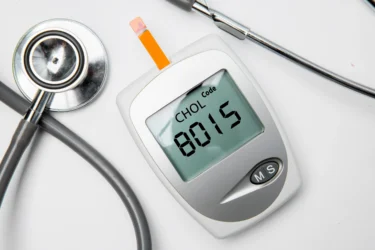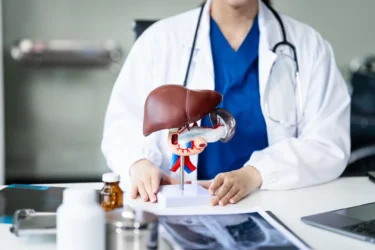Grape Juice: Uses, Benefits, Side Effects and More!
By Dr Ashok Pal +2 more

Get,

to manage your symptom
Get your,


4 Cr+ families
benefitted

OTP sent to 9988776655



You’ve successfully subscribed to receive
doctor-approved tips on
Whatsapp

Get ready to feel your best.

Hi There,
Download the PharmEasy App now!!


Register to Avail the Offer
Send OTPBy continuing, you agree with our Privacy Policy and Terms and Conditions

Hi There,
Sign up on PharmEasy now!!
Trusted by 4 crore+ families

OTP sent to 9988776655



You have unlocked 25% off on medicines




Code: NU25
By Dr Ashok Pal +2 more
Table of Contents
Many varieties of grapes are grown in the world. However, the European species (Vitis vinifera) and the American species (Vitis labrusca) are mainly utilized for making grape juice and wine. They contain a high amount of bioactive compounds that may make grapes more than just a delicious fruit for juices and wine! The nature of the grape, planting and storage conditions along with the industrial process used for the production of the grape juice may interfere with its potential health- related properties1.
Grape juice has a unique colour, flavour and aroma. It is a non-fermented juice and can be conserved when subjected to treatment. When fresh grape juice undergoes alcoholic fermentation, we obtain one of the world’s loved drinks – wine. The bioactive compounds and properties of grape juice are slightly different from that of wine. Let’s read and find out more about the properties, potential uses and side effects of grape juice1.

The percentage content of nutrients present in 100g grape juice are as follows:
Minerals present in grape juice:
Vitamins present in grape juice:
Did you know?
Researchers have studied this delicious drink quite a bit and have identified that grape juice might possess the following properties:
Grape juice might have potential health benefits. However, right now, there is no clear evidence that states the effects of grape juice on our health. So, according to the currently available studies, the following are the potential uses of grape juice.

A recent study3 conducted by Cheng et al. in the year 2017 showed that grape juice might have the potential to help reduce oxidative stress. It was observed that grape juice might exhibit this effect due to the antioxidant activity it might possess. Grape juice might help improve the enzymatic activity of certain enzymes (SOD, GP, etc.) which might possibly help reduce the oxidative stress in the body. However, there is a need for more research to prove such effects of grape juice on human health.
Grapes, which are rich in antioxidants, may aid in the battle against free radicals, which are chemicals that may harm cells and perhaps cause cancer. To help lower the risk of cancer, antioxidants minimise what is known as oxidative stress. Resveratrol, an antioxidant found in grapes, may prevent cancer by lowering inflammation and preventing the development of cancer cells. In addition to these antioxidants, grapes also contain catechins, quercetin, and anthocyanins, which together may be particularly effective against cancer. Hence, I strongly recommend the daily consumption of grape juice in the right amount7.
Dr. Rajeev Singh, BAMS

In a study4 conducted on animals in 2018, it was seen that grape juice might have the potential to help lower the level of lipids in our blood. Other studies reached similar conclusions. This may be due to the presence of bioactive compounds in grape juice. However, there is a need for more studies on humans to understand the effects of grape juice on lipids (fats) in the body. The diagnosis and treatment of cholesterol should be made by a doctor. So, make sure that you consult a doctor.

Several studies5 have shown that grape juice might help the liver. This effect might be due to its possible lipid-lowering effect. This potential property may be attributed to the bioactive compounds present in grape juice. However, more studies are required to prove its effects on humans. Conditions of the liver can be serious so ensure that you visit a doctor if you suspect an underlying liver condition.

Seymour and Bolling, in their study6 conducted on mice in 2016, found that grape juice might possesses anti-inflammatory property. It is hypothesised that the compounds in grape juice might interfere with the pathways of inflammation and might help reduce inflammation. However, there is a need for more research to prove such claims.

As per recent studies1 conducted by Hakova et al. 2020; Cicero, Ruscica and Banach 2019; Rameshrad et al 2019, and Sun et al.2008, it seems that grape juice has a bioactive compound called resveratrol that might have the potential to protect against diseases of the nerves. Researchers think that grape juice might help with Alzheimer’s, Parkinson’s and other chronic degenerative diseases of the nerves. However, a lot of research has to be conducted to back up such claims.
Though there are studies that show the potential uses of grape juice in various conditions, these are insufficient, and there is need for further studies to establish the true extent of the benefits of grape juice on human health.
Because it contains a lot of vitamin C, grape juice may support your immune system’s defence against viral and bacterial illnesses, including yeast infections. From my knowledge, if we have a strong immune system, our body is better able to fight against and avoid any sudden, brief illness7.
Dr. Siddharth Gupta, B.A.M.S, M.D (Ayu)
You can use grape juice by either purchasing it from the market or you can prepare fresh grape juice at home. Fresh grape juice at home can be prepared by following the given method:
However, you should not use grape juice without consulting with your doctor about its safety for your health.
You must consult a qualified doctor before taking any herbal supplements. Do not discontinue or replace an ongoing treatment of modern medicine with an ayurvedic/herbal preparation without consulting a qualified doctor.
Also Read: Carrot Beetroot Juice: Uses, Benefits, Side Effects and More!
More research is required to verify the side effects of grape juice on human health. The data present is not sufficient either to fully validate its side effects or its absolute safety. If you notice any symptoms from drinking grape juice, you should consult your doctor immediately. They will be able to guide you regarding the safety of grape juice on your health. Kindly do not use grape juice as medicine without consulting a doctor. It is at the discretion of your doctor to choose the therapy required for your health condition basis your consultation with them. Therefore, you should consult an Ayurvedic physician for further information.
General precautions must be taken before using grape juice. You should especially be careful while giving it to children and elderly individuals. You should take extra caution while giving it to pregnant women and breastfeeding mothers as well. As the evidence present is not sufficient to claim the safety of grape juice for human health, you should consult a doctor before using grape juice. Kindly do not self-medicate, replace, alter, or discontinue any ongoing treatment on your own.
Also Read: Papaya Juice: Uses, Benefits, Side Effects and More!
There is not enough data to suggest that grape juice does not react to it any other drugs. There is a need for more research to prove the absolute safety of grape juice for human health. Therefore, you should always consult your doctor before using grape juice. You should especially be careful if you are undergoing any treatment and are taking medications.
Also Read: Apple Juice: Uses, Benefits, Side Effects and More!
Grape juice might have the potential to help with lowering oxidative stress for the heart, inflammation, etc. However, these potential uses need to be backed up by more research to be able to use grape juice as a therapeutic drink. Please do not use it to self-medicate, alter, replace or discontinue an ongoing treatment3.
There is not enough evidence stating the safety of grape juice for pregnant women. Therefore, it is better to consult a doctor before giving grape juice to pregnant women.
Various nutrients and bioactive compounds are present in grape juice. It contains carbohydrates, proteins, fats, fibre, vitamins (A, C, B) and minerals (zinc, potassium, etc.). One of the bioactive compounds that it may contain is resveratrol2.
There are no reports or studies claiming the potential use of grape juice for skin. There will be a need for more studies to prove such claims. Please visit a doctor before using grape juice for its apparent benefits.
Grape juice might be helpful for the liver. Bioactive compounds present in grape juice and the possible lipid-lowering effect of grape juice might have a positive effect on the health of the liver. However, there is a need for more research on humans to prove the potential use of grape juice for the liver. Kindly do not self-medicate, alter, or discontinue any ongoing treatment on your own. Liver conditions can be serious and should be diagnosed and treated by medical professionals3.
You should consult a doctor before drinking grape juice everyday as it can have unknown effects on different people. Kindly do not self-medicate.
1. Barbalho SM, Bueno Ottoboni AMM, Fiorini AMR, Guiguer ÉL, Nicolau CCT, Goulart R de A, et al. Grape juice or wine: which is the best option? Crit Rev Food Sci Nutr [Internet]. 2020 Dec 15;60(22):3876–89. Available from: http://www.ncbi.nlm.nih.gov/pubmed/31920107
2. Bedê TP, de Jesus V, Rosse de Souza V, Mattoso V, Abreu JP, Dias JF, et al. Effect of grape juice, red wine and resveratrol solution on antioxidant, anti-inflammatory, hepactic function and lipid profile in rats feds with high-fat diet. Nat Prod Res [Internet]. 2021 Dec;35(23):5255–60. Available from: http://www.ncbi.nlm.nih.gov/pubmed/32400183
3. Junior JB, Arantes DAC, Siqueira Leite KC, de Souza Gil E, Rocha ML. Protective Effects of Grape Juice on Vascular Damage Induced by Chlorine Free Radical in Rats. Prev Nutr Food Sci. 2021 Dec 31;26(4):417-424. doi: 10.3746/pnf.2021.26.4.417. PMID: 35047438; PMCID: PMC8747961. Available from: https://pmc.ncbi.nlm.nih.gov/articles/PMC8747961/
4. Lupoli R, Ciciola P, Costabile G, Giacco R, Minno MNDD, Capaldo B. Impact of Grape Products on Lipid Profile: A Meta-Analysis of Randomized Controlled Studies. J Clin Med. 2020 Jan 22;9(2):313. doi: 10.3390/jcm9020313. PMID: 31979098; PMCID: PMC7073656. Available from: https://pmc.ncbi.nlm.nih.gov/articles/PMC7073656/
5. Kim MJ, Kim MJ, Han DW, Kim JI. Hepatoprotective Effect of Fresh Grape Juice Prepared by a Low-Speed Masticating Juicer in db/db Mice. Prev Nutr Food Sci. 2019 Mar;24(1):95-101. doi: 10.3746/pnf.2019.24.1.95. Epub 2019 Mar 31. PMID: 31008102; PMCID: PMC6456238. Available from: https://pmc.ncbi.nlm.nih.gov/articles/PMC6456238/
6. Seymour EM, Bolling SF. Grapes and Inflammation. In: Grapes and Health. 2016. p. 77–97. doi:10.1007/978-3-319-28995-3_5. Available from: https://www.researchgate.net/publication/303542070_Grapes_and_Inflammation
7. Cleveland Clinic. 10 Health Benefits of Grapes [Internet]. Cleveland, OH: Health Essentials, Cleveland Clinic; 15 Nov 2021 [cited 2026 Jan 22]. Available from: https://health.clevelandclinic.org/health-benefits-of-grapes
Disclaimer: The information provided here is for educational/awareness purposes only and is not intended to be a substitute for medical treatment by a healthcare professional and should not be relied upon to diagnose or treat any medical condition. The reader should consult a registered medical practitioner to determine the appropriateness of the information and before consuming any medication. PharmEasy does not provide any guarantee or warranty (express or implied) regarding the accuracy, adequacy, completeness, legality, reliability or usefulness of the information; and disclaims any liability arising thereof.
Links and product recommendations in the information provided here are advertisements of third-party products available on the website. PharmEasy does not make any representation on the accuracy or suitability of such products/services. Advertisements do not influence the editorial decisions or content. The information in this blog is subject to change without notice. The authors and administrators reserve the right to modify, add, or remove content without notification. It is your responsibility to review this disclaimer regularly for any changes.
Comments

Leave your comment...
You may also like
Comments